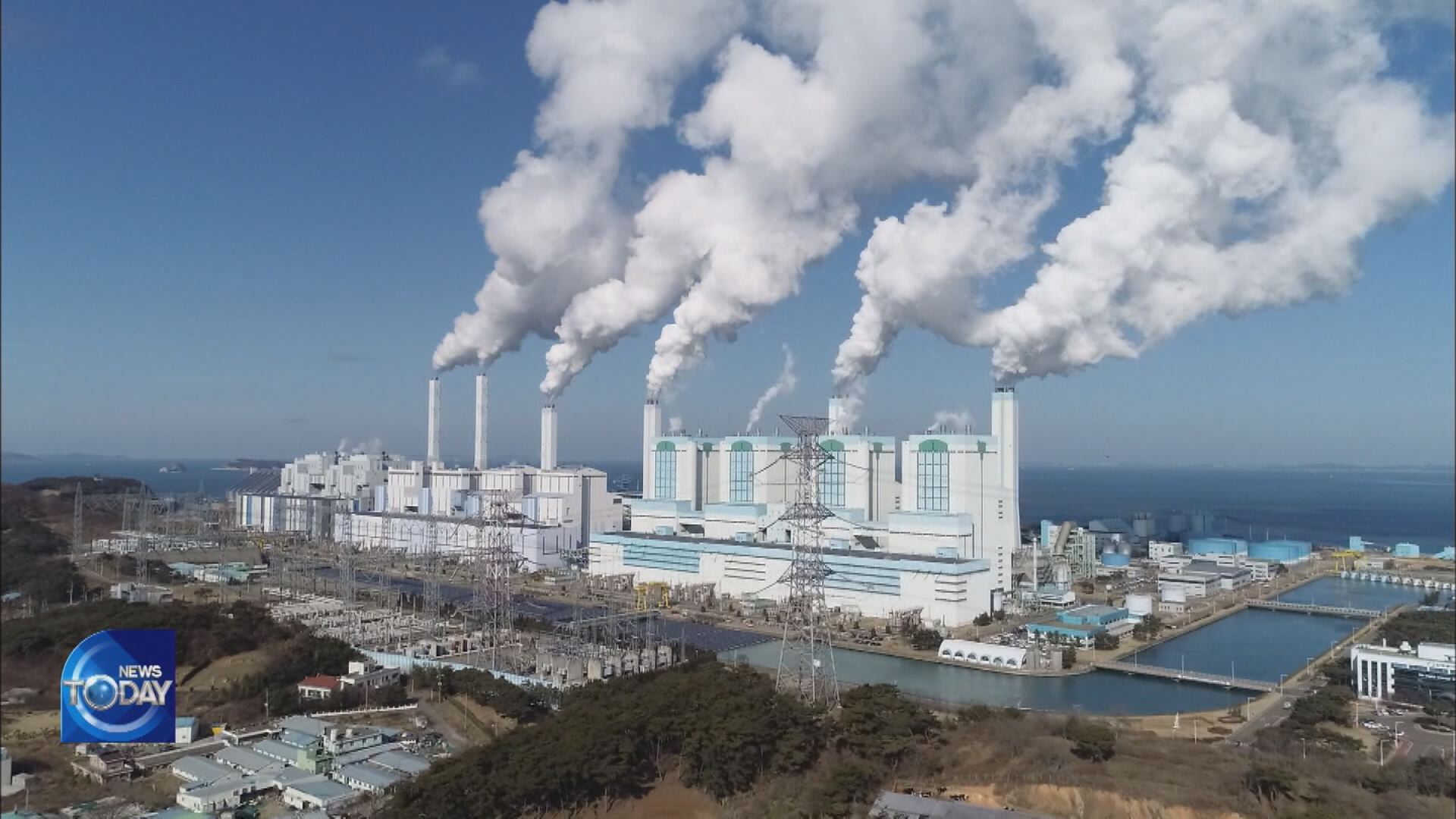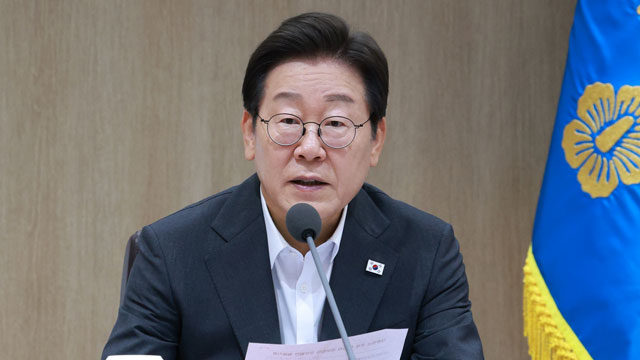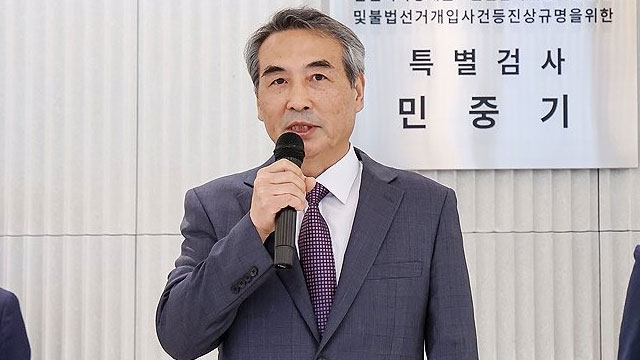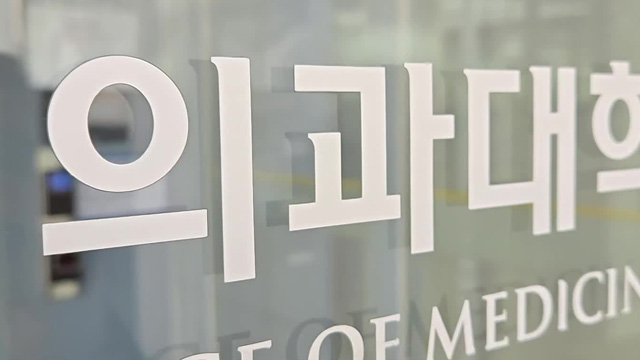GOV'T TO REDUCE COAL POWER GENERATION
입력 2021.02.26 (15:25)
수정 2021.02.26 (16:46)
읽어주기 기능은 크롬기반의
브라우저에서만 사용하실 수 있습니다.
[Anchor Lead]
The government decided to decrease coal power generation by nearly half for the next month to reduce air pollution in the spring. The decision was based on a projection that Korea’s power supply would not be affected even if the number of coal-fired power generators are decreased.
[Pkg]
The Ministry of Trade, Industry, and Energy announced that new measures will be implemented in the month of March to reduce air pollution in the spring. It will require either power generators to be shut down or coal power plants’ electricity output to be restricted. As many as 28 out of 58 coal-fired power generators will be shut down and the power output limited to 80% capacity to reduce particulate matter emission as much as possible. During weekdays, between 19 and 21 coal power generators will be shut down while on the weekends, when power demand is lower, the operation of up to 28 generators are to be suspended. As many as 17 generators have been shut down since last December. So, 11 more generators will be suspended from operation. The energy ministry also plans to limit power output from 37 coal power generators to 80%. The ministry has been implementing the fine dust seasonal management system since last December. As a result, the particulate matter emission from coal power generation over the past two months decreased 519 tons or 23% compared to the same period last year. The energy ministry added that the PM10 emission fell 2,054 tons or by 54% compared to the emission amount between December 2018 and January 2019, before the seasonal management program went into effect. The government emphasized that Korea’s power supply will not be affected at all even if coal-fired power generation is reduced. Power demand spiked last month when an unusual cold wave and heavy snowfalls hit Korea. Nonetheless, power supply remained stable, recording a 9.5% electric reserve rate at its peak. Bracing against emergencies, the energy ministry plans to monitor the power supply and operate response measures coordinated with the Korea Power Exchange and other relevant agencies over the entire month of March.
The government decided to decrease coal power generation by nearly half for the next month to reduce air pollution in the spring. The decision was based on a projection that Korea’s power supply would not be affected even if the number of coal-fired power generators are decreased.
[Pkg]
The Ministry of Trade, Industry, and Energy announced that new measures will be implemented in the month of March to reduce air pollution in the spring. It will require either power generators to be shut down or coal power plants’ electricity output to be restricted. As many as 28 out of 58 coal-fired power generators will be shut down and the power output limited to 80% capacity to reduce particulate matter emission as much as possible. During weekdays, between 19 and 21 coal power generators will be shut down while on the weekends, when power demand is lower, the operation of up to 28 generators are to be suspended. As many as 17 generators have been shut down since last December. So, 11 more generators will be suspended from operation. The energy ministry also plans to limit power output from 37 coal power generators to 80%. The ministry has been implementing the fine dust seasonal management system since last December. As a result, the particulate matter emission from coal power generation over the past two months decreased 519 tons or 23% compared to the same period last year. The energy ministry added that the PM10 emission fell 2,054 tons or by 54% compared to the emission amount between December 2018 and January 2019, before the seasonal management program went into effect. The government emphasized that Korea’s power supply will not be affected at all even if coal-fired power generation is reduced. Power demand spiked last month when an unusual cold wave and heavy snowfalls hit Korea. Nonetheless, power supply remained stable, recording a 9.5% electric reserve rate at its peak. Bracing against emergencies, the energy ministry plans to monitor the power supply and operate response measures coordinated with the Korea Power Exchange and other relevant agencies over the entire month of March.
■ 제보하기
▷ 카카오톡 : 'KBS제보' 검색, 채널 추가
▷ 전화 : 02-781-1234, 4444
▷ 이메일 : kbs1234@kbs.co.kr
▷ 유튜브, 네이버, 카카오에서도 KBS뉴스를 구독해주세요!
- GOV'T TO REDUCE COAL POWER GENERATION
-
- 입력 2021-02-26 15:25:04
- 수정2021-02-26 16:46:00

[Anchor Lead]
The government decided to decrease coal power generation by nearly half for the next month to reduce air pollution in the spring. The decision was based on a projection that Korea’s power supply would not be affected even if the number of coal-fired power generators are decreased.
[Pkg]
The Ministry of Trade, Industry, and Energy announced that new measures will be implemented in the month of March to reduce air pollution in the spring. It will require either power generators to be shut down or coal power plants’ electricity output to be restricted. As many as 28 out of 58 coal-fired power generators will be shut down and the power output limited to 80% capacity to reduce particulate matter emission as much as possible. During weekdays, between 19 and 21 coal power generators will be shut down while on the weekends, when power demand is lower, the operation of up to 28 generators are to be suspended. As many as 17 generators have been shut down since last December. So, 11 more generators will be suspended from operation. The energy ministry also plans to limit power output from 37 coal power generators to 80%. The ministry has been implementing the fine dust seasonal management system since last December. As a result, the particulate matter emission from coal power generation over the past two months decreased 519 tons or 23% compared to the same period last year. The energy ministry added that the PM10 emission fell 2,054 tons or by 54% compared to the emission amount between December 2018 and January 2019, before the seasonal management program went into effect. The government emphasized that Korea’s power supply will not be affected at all even if coal-fired power generation is reduced. Power demand spiked last month when an unusual cold wave and heavy snowfalls hit Korea. Nonetheless, power supply remained stable, recording a 9.5% electric reserve rate at its peak. Bracing against emergencies, the energy ministry plans to monitor the power supply and operate response measures coordinated with the Korea Power Exchange and other relevant agencies over the entire month of March.
The government decided to decrease coal power generation by nearly half for the next month to reduce air pollution in the spring. The decision was based on a projection that Korea’s power supply would not be affected even if the number of coal-fired power generators are decreased.
[Pkg]
The Ministry of Trade, Industry, and Energy announced that new measures will be implemented in the month of March to reduce air pollution in the spring. It will require either power generators to be shut down or coal power plants’ electricity output to be restricted. As many as 28 out of 58 coal-fired power generators will be shut down and the power output limited to 80% capacity to reduce particulate matter emission as much as possible. During weekdays, between 19 and 21 coal power generators will be shut down while on the weekends, when power demand is lower, the operation of up to 28 generators are to be suspended. As many as 17 generators have been shut down since last December. So, 11 more generators will be suspended from operation. The energy ministry also plans to limit power output from 37 coal power generators to 80%. The ministry has been implementing the fine dust seasonal management system since last December. As a result, the particulate matter emission from coal power generation over the past two months decreased 519 tons or 23% compared to the same period last year. The energy ministry added that the PM10 emission fell 2,054 tons or by 54% compared to the emission amount between December 2018 and January 2019, before the seasonal management program went into effect. The government emphasized that Korea’s power supply will not be affected at all even if coal-fired power generation is reduced. Power demand spiked last month when an unusual cold wave and heavy snowfalls hit Korea. Nonetheless, power supply remained stable, recording a 9.5% electric reserve rate at its peak. Bracing against emergencies, the energy ministry plans to monitor the power supply and operate response measures coordinated with the Korea Power Exchange and other relevant agencies over the entire month of March.
이 기사가 좋으셨다면
-
좋아요
0
-
응원해요
0
-
후속 원해요
0














![[단독] 위성락 실장 “전작권 협상 카드 아냐…카드로 써서도 안 돼”](/data/layer/904/2025/07/20250713_uwNBPL.jpg)


이 기사에 대한 의견을 남겨주세요.